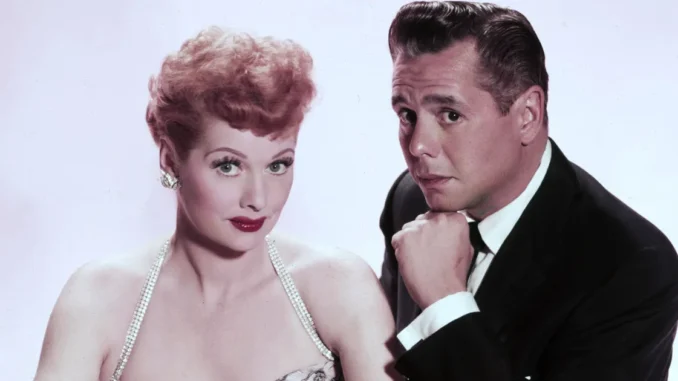
Introduction
Who doesn’t love a good laugh? And who could forget the iconic duo of Lucille Ball and Desi Arnaz? Their on-screen antics in I Love Lucy had us all in stitches. But did you know that this beloved sitcom wasn’t just about silly shenanigans? It was a cultural revolution that changed the face of television forever. Let’s dive into how I Love Lucy broke barriers, challenged norms, and left an indelible mark on the entertainment industry.
A New Era of Television
Live and Direct
Before I Love Lucy, sitcoms were typically filmed in a studio without an audience. But Ball and Arnaz had a revolutionary idea: let’s bring in a live audience and capture their reactions! This innovative approach created a more authentic and spontaneous feel to the show, and it quickly became the gold standard for sitcoms.
Pushing the Boundaries
I Love Lucy wasn’t just about groundbreaking production techniques. The show tackled social issues that were considered taboo at the time. From Lucy’s desire for a career outside the home to the cultural differences between Lucy and Ricky, the sitcom opened up important conversations about gender roles, marriage, and diversity.
Laughter and Social Commentary
Hidden Messages
Beneath the surface of all the laughs and gags, I Love Lucy was delivering some serious social commentary. By highlighting the challenges faced by working women and the complexities of interracial relationships, the show was ahead of its time.
Breaking Stereotypes
Lucy Ricardo was more than just a ditzy housewife. She was a symbol of female empowerment, defying traditional gender roles and proving that women could be both funny and intelligent.
A Legacy That Endures
Catchphrases and Cultural References
Even decades after it first aired, I Love Lucy continues to influence pop culture. Phrases like “Lucy, you got some ‘splainin’ to do!” and “You got a lot of nerve!” have become part of the American lexicon.
A Blueprint for Sitcoms
I Love Lucy set the blueprint for countless sitcoms that followed. The show’s emphasis on relatable characters, witty dialogue, and situational comedy has been replicated time and time again.
Conclusion
I Love Lucy was more than just a funny show; it was a cultural phenomenon that reshaped the television landscape. By breaking new ground in production techniques and addressing social issues head-on, the show left an enduring legacy that continues to inspire audiences today.
